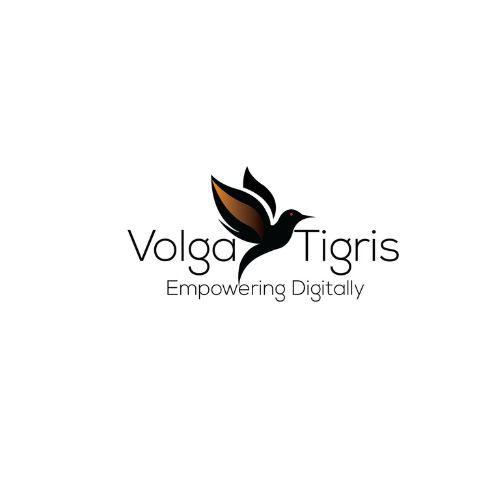When you use the might of SEO (effectively combining blogging and content marketing), your business will take off a step above the rest. Read on to become better in key aspects. Are you ready to bring your digital marketing up a notch? Let’s dive in!
Understanding SEO: The Foundation of Digital Marketing
Search Engine Optimization (SEO) is the bedrock of every successful digital marketing plan. This includes improving your website and content so that it ranks high on search engine results pages (SERPs), making it easier for potential customers to find you.
SEO is simply an understanding of what online users are searching for, the search terms (keywords) being used, and how search engine works.
SEO has several important components:
- Keyword Research: Learning which words or phrases your target audience is using when searching for products or services that you provide. Most importantly, keyword research helps you make good content that fulfills the needs of your audience and ranks well on search engines.
- On-Page SEO: This is the optimization of individual pages on your website. This includes using keywords that are applicable to your post in the titles, headers, and content; as well as optimizing images and making sure that you site loads fast.
- Off-Page SEO: This is basically doing things outside of your website in an effort to improve ranking. Off-page SEO includes creating high-quality backlinks from trusted sites, social engagement, and sharing content.
- Technical SEO: It is mainly focused on the technology – how your website works optimally in terms of structure, mobile-friendliness, and security. A fast loading site that is easy to navigate can have a huge effect on how you rank in search engines.
Blogging: The Secrets of Writing Valuable Content
One of the most effective digital marketing tools that can help you reach unprecedented heights is blogging, which not only helps improve your SEO but also gives you a chance to connect with your readers on an emotional level.
Regularly posting quality and relevant blogs can help in making your business be seen as an expert in the industry, which keeps your followers interested. Here are the reasons why blogging is important for your business:
- Helps SEO: Every new blog post is a chance to target specific keywords. It can make your website more discoverable, which ranks you in search results as the search engine only favours websites that regularly update their content with fresh and valuable information.
- Engages Your Audience: Blogs make it possible to speak directly to your key audience. Offering valuable, useful content will help keep your site visitors coming back for more.
- Showcases Expertise: If you commit to writing helpful and original blog posts on a regular basis, it positions you as an expert in your domain. This helps build credibility with your customers and establishes you as a reliable resource.
- Gets Traffic: This simply means that you can target a larger group of viewers and generate more traffic to your website by sharing those posts, on social media or various other platforms.
- Generates Leads: The right blog can lead readers through the customer journey, from awareness and consideration, to decision. Posts with calls-to-action (CTAs) will invite readers not only to read on but also to go and subscribe, download a resource, or reach out.
- Supports Content Marketing: Blogging supports other content marketing initiatives (social media updates, email newsletters, and downloadable guides), including niche topics like “wooden pallets in Toronto“. This ensures a well thought out content strategy that is catered to different platforms.
Content Marketing: Building Trust and Authority
Content marketing is the strategic approach to creating and distributing valuable, relevant, and consistent content in order to attract a clearly defined audience. No, you’re not just selling your products or services; it’s giving useful information to your audience to help them with their concerns.
Why is content marketing important for trust and credibility?
- Establishes Credibility: Creating valuable content that satisfies the wants and challenges of your audience establishes you as a thought leader in your industry. It establishes trust and credibility, which both works as a reason for potential customers to choose you over other products/services.
- Educates Your Audience: Informative content helps your audience break down tough subjects and take more knowledgeable decisions, as well as see the benefits of what you are offering. Types of educational content include blog posts, whitepapers, eBooks, webinars, and infographics among many others.
- Fosters Engagement: Content marketing provides the opportunity to engage with your audience in a meaningful way. Facilitating comments, questions, and discussions allow you to generate a community related to your brand, which builds stronger bonds with your followers.
- Boosts Brand Awareness: If your content provides value to an audience, they are more likely to share it with their social network, which increases the total size of your reach and brand awareness. For instance, incorporating trending search terms like “Kayak near me“ in your content can attract more local interest and engagement.
- Supports SEO: Content containing appropriate keywords, and in a well-prepared form, can result in gaining a higher rank in search results, which directly increases organic traffic. Also, using different types of content like videos, podcasts, and interactive contents can help boost your SEO efforts.
- Creates Leads and Conversions: Good content marketing takes your reader by the hand, leading them through the buyer’s journey. This process can help convert them into clients.
Best Practices for Combining SEO and Blogging
You should be doing comprehensive keyword research to discover exact words and phrases that your audience actually use when searching. Use these keywords on your blog content seamlessly so that it receives recognition by the reader and response to search engine rankings.
Construct compelling, keyword-based titles such as “marriage counselling in Windsor, Ontario,” as well as brief meta descriptions to boost click-through rates and help search engines understand your content. That means utilizing clear headings and subheadings with each post works to your advantage, offering an extra layer of clarity in terms of content organization as well as optimizing SEO efforts.
Your website also needs internal links to navigate readers through your site and external links from trusted sources to keep visitors on the page; telling search engines that this is a useful article.
Compress images to increase load speed and use alt text with keyword-rich phrasing on your image files. This not only provides a better user experience but also drives your image to rank in the Google Image search. Responsive design is important to provide an awesome user experience. Even Google gives priority to mobile friendly sites.
You can also update old blog posts to keep your content fresh and evergreen by refreshing information, links, and keywords. This keeps it up to date, and helps with search engine results down the line.
Elevate Your Digital Presence
SEO, blogging, and content marketing are three pieces of the same puzzle with their integration appearing to be a prerequisite for successful digital marketing. By incorporating these valuable suggestions into your daily routine, you can increase your exposure in the online landscape and build a solid foundation for success. Follow these steps and increase your digital horizon today.





